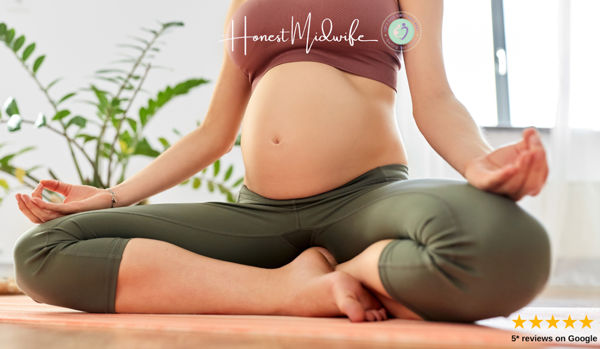When do feet swell during pregnancy?
Oedema affects about three-quarters of pregnant women. It can start around week 22 to week 27 of pregnancy and will likely stick around until you give birth.
What causes swollen ankles and feet during pregnancy?
During pregnancy, oedema occurs when body fluids increase to nurture both you and your baby and accumulate in your tissues as a result of increased blood flow and pressure of your growing uterus on the pelvic veins and your vena cava (the large vein on the right side of your body that returns blood from your lower limbs to your heart).
This causes you to experience this swelling — particularly swollen ankles and feet (but also your hands, as you may have noticed when you last tried to take off your rings). You might also be sporting more swelling in your feet if your weight gain has been on the faster side.
Are there risks associated with swollen ankles and feet?
Mild swelling of the ankles and feet caused by oedema is harmless and perfectly normal.
It's also just as normal not to experience noticeable swelling (one in four lucky pregnant women don't).
However, if your hands or face become puffy or if swelling persists for more than a day at a time (i.e., it doesn't improve overnight), call your midwife.
Relax and prepare for labour from the comfort of home, suitable for all levels. Includes breathing techniques to assist in labour & postures to release tension.
Excessive swelling can be one sign of preeclampsia — but when it is, it's accompanied by a variety of other symptoms (such as elevated blood pressure, rapid weight gain and protein in the urine). If your blood pressure and urine are normal (they're checked at each prenatal visit), there's nothing to be concerned about.
Rarely, swelling in the legs could be a sign of deep vein thrombosis (DVT), a potentially life-threatening condition that occurs when a blood clot forms in a deep vein. Swelling from DVT tends to only affect one leg (usually the left leg) and might cause a feeling of heaviness or pain that gets worse when you stand up, or skin that’s red or warm to the touch. If you notice any of these signs, call your practitioner right away.
How to stop feet from swelling while pregnant:
- Avoid long periods of standing or sitting. If you're on your feet a lot, take breaks and have a seat. If you're sitting down a lot, take a 5-minute walk at least once an hour.
- Kick up your feet. If possible, elevate your legs when you're sitting.
- Sleep on your side. If you don’t already, try sleeping on your side (preferably your left) — it helps keep your kidneys humming along, which helps eliminate waste and reduce swelling.
- Move it. Do some pregnancy-appropriate exercise, such as walking (which keeps the blood flowing instead of pooling).
- Avoid too-tight elastic-top socks or stockings. Your goal is to let blood and fluids flow as freely as possible (socks that leave an indentation mark around your leg are likely too tight).
- Wear comfy shoes. Especially while you're out (those sexy slingbacks don't fit now, anyway). Consider orthotic shoes or inserts as well, which can make your feet feel better and can reduce leg and back pain during pregnancy too. Once you get home, switch to a pair of soft slippers.
- Drink lots of water. It may seem counterintuitive to try to flush out fluids with fluids, but drinking 8 to 10 glasses of water a day will help rid your system of excess sodium and other waste products, minimizing swelling.
- Don’t go crazy with the salt shaker. Limiting salt too much increases swelling — so don’t cut it out entirely. But like everything, it’s best to keep your intake in moderation and salt your food to taste.





